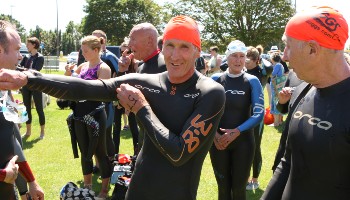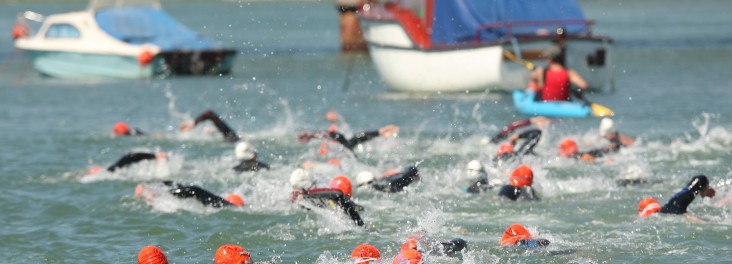Swimming training zone
We're delighted you have decided to take part in a swimming challenge for us, and welcome you as part of Team Animal! We are here to help, so check out the information on kit and training, and give us a shout if you have any questions.
Swimming Gear
Luckily swimming doesn't need too much gear, but it's still important to be confident in your kit when you enter the water, so be sure to practice in all of your kit as much as possible before your challenge.
Wetsuit

Goggles
It's always a good idea to wear goggles. You might want to wear goggles that are designed for open water, with features like tinted lenses.
Swim Cap
Event organisers will provide you with a compulsay cap to wear during your swim. If you get cold in the water, you can always wear one of your choice underneath.
Training and Preparation
Practice
If you are planning on taking part in an outdoor swimming event, the more open water swim experience you can get before race day, the better. You will gain more confidence in the water, get familiar with your gear, learn how to swim in your wetsuit and your technique will improve. Remember, frequency is key, so don't feel like you have to do an hours swim. Practicing is the BEST thing you can do.
Get a plan
It sounds really simple, but have a simple training plan laid out to follow to keep motivation up, so you know what you're doing each day. This will make it easier to decide what to do when you get into the water with regards to speed, stroke and distance training. A good programme will be designed with your goals in mind, so every session will have a realistic and practical purpose.
Training plans
Here are a number of plans, so you can find the training plan for you.
Mix it up
Make sure you vary your sessions. Try different techniques to help you reach the next level in training or increase fitness levels. A 50m pool is great for distance or open-water swimmers to train in, but it's extra tough on the shoulders as you don't get a break, whereas a 25m pool gives you a chance to practise more turns and is a little easier on the body.
Set yourself small targets if you're struggling
Try counting your strokes, or try to do fewer strokes in the next length while staying the same speed.
Swim with someone else
Try swimming with another person to stay motivated. Not only can this often result in pushing yourself harder, but you are more likely to train if another person is depending on you.




